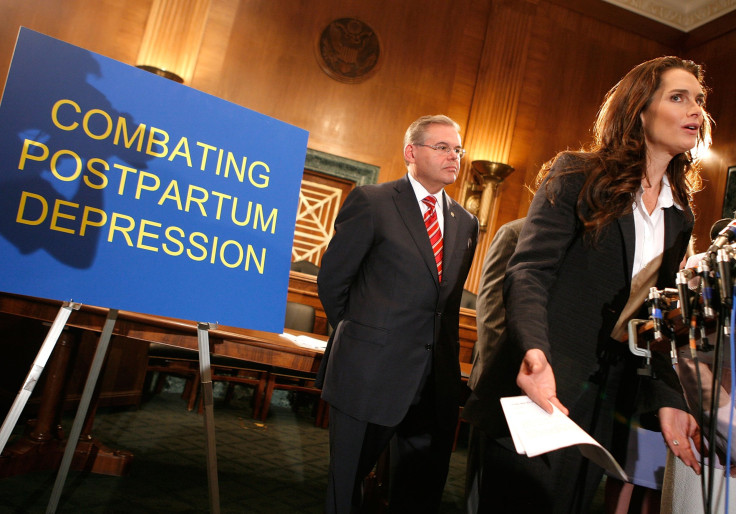Mom’s Viral Photos Show Reality Of Postpartum Depression

An Ohio mom’s viral Facebook post shares what it feels like to live with postpartum depression.
Although the two photos Kathy DiVincenzo posted were taken in the same setting on the same day, they show stark differences. In one photo, she is shown with a glistening smile stretched across her face, as she holds her 3-month-old son’s hand and her 3-year-old daughter looks up at her smiling. In another photo, she appears disheveled and exhausted, as her bra strap slips off her shoulder, and her bright smile is no longer visible.
In honor of Postpartum Depression Awareness Month, DiVincenzo teamed up with her friend and photographer Danielle Fantis, to stage a photoshoot to show the realities of the mood disorder that affects as many as 1 in 7 mothers, a study published in JAMA Psychiatry estimates.
“We need to stop assuming that the postpartum period is always euphoric, because for 1 in 7 it’s not. We need to start asking new parents how they’re doing in a deeper way than the normal, ‘so how are you doing?’ that triggers the knee jerk, ‘everything’s great!’ response,” DiVincenzo wrote in her Facebook post, which has now been shared more than 71,000 times. “We need to learn the signs, symptoms, risk factors, and support plans for postpartum conditions.”
DiVincenzo, who’s also diagnosed with anxiety and obsessive compulsive disorder, explains that both of the photos represent her life, but how she feels ultimately depends on the day.
There’s no single, identifiable cause of postpartum depression, but it’s likely a mix of physical and emotional factors, according to the National Institute of Mental Health. After a woman gives birth, there are many signs to look out for that indicate she may have postpartum depression. Some of the common signs are a feeling of hopelessness, loss of interest in usually enjoyable activities, trouble bonding with her baby, and doubting her ability to take care of her child.
See posts, photos and more on Facebook.
DiVincenzo notes one of the most difficult part of battling her conditions is having to try and pretend like they don’t exist.
“I work twice as hard to hide this reality from you because I'm afraid to make you uncomfortable,” she wrote. “I'm afraid you'll think I'm weak, crazy, a terrible mother, or the other million things my mind convinces me of and I know I'm not alone in those thoughts.”
She’s certainly not alone, as her story even inspired her photographer to publicly share her own battle with the disorder. Postpartum depression can affect any mother, regardless of her age, race, or other factors. If left untreated, a mother’s health can be greatly impacted for months or years. Treatments vary, and some mothers will choose to attend counseling sessions, while others will take antidepressant medications. Both can be done alone or together as a combined treatment.
Copyright Medical Daily News Service. All rights reserved.





















